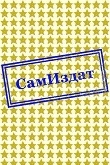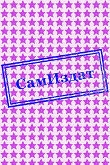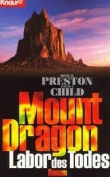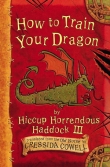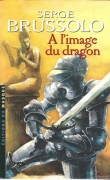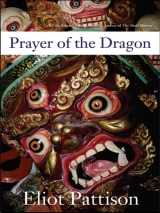
Текст книги "Prayer of the Dragon"
Автор книги: Eliot Pattison
Жанр:
Полицейские детективы
сообщить о нарушении
Текущая страница: 2 (всего у книги 24 страниц)
As Shan followed the genpo toward the largest of the structures along the short, dusty street, he glanced at Lokesh, seeing in his friend’s troubled eyes confirmation that he had heard correctly. August the First. The little village, so remote it seemed to have escaped the notice of the government since the day it was bombed from the air, was preparing to celebrate one of Beijing’s most patriotic holidays, the day set aside for praise of China’s military.
In the sparsely furnished sitting room on the second floor of his house, Chodron’s wife silently served them more buttered tea while the headman boasted of the accomplishments of his village. Most of the families had lived in Drango for eight or more generations, he explained. Once they had been renowned for their finely woven carpets like the one that adorned the room they sat in. Shan’s gaze drifted over the headman’s shoulder to a shelf heavy with books, all hardbound printed books, all in Chinese, then finally to a framed photo on the wall of a much younger Chodron in the uniform of the People’s Liberation Army.
As they walked back outside, a bell rang somewhere. Lokesh smiled. It was a way of summoning deities, a way of accompanying the rhythm of mantras. But these peals quickly became frantic, and from the slopes men began shouting. Sweet, acrid smoke wafted around the houses. The headman gasped and darted toward the street, Shan a step behind him. Someone had set the pile of juniper wood alight.
The village exploded with activity, some villagers running to the stream with buckets, others toward the fields with brooms and blankets. Every flying spark threatened their precious harvest. Shan ran with them toward the thick column of smoke, then saw Lokesh headed for the stable at the other end of the settlement. Shan paused only long enough to see the headman confer with the big farmer who had been guarding the stable door. The man began to run up a track along the stream at the side of the fields, pausing only to lift a heavy harvest knife from a bench by a granary.
A minute later, Shan was at his friend’s side. The guard at the door was gone, the chamber emptied of everyone but Gendun and his charge. Lokesh approached the pallet and lifted the man’s hand, taking his pulse at his wrist, then his neck, and temple. Shan brought tea from the kettle by the door.
Lokesh raised a hand. “It might revive him. Water, not tea. I have given him water every few hours.”
Lokesh tipped the man’s head back as Shan filled a ladle from a bucket and began dripping water into his mouth. Long bony fingers reached out and closed around the man’s lifeless hand. Gendun had stopped his mantra. Lokesh straightened the man’s legs and began massaging the limbs, pausing twice to press his ear to the stranger’s chest and check his pulse. “His flesh cannot endure without nourishment,” Lokesh declared in a worried tone.
“This particular life,” came a voice like rustling grass, “is not rounded.”
Lokesh and Shan looked up. Except for his prayers, these were the first words Gendun had spoken since Shan’s arrival. Gendun’s words were used between monks of their hermitage or by the monks of Shan’s former prison to describe a strong stumbling spirit that had failed to resolve itself before death.
“The mountain,” Lokesh said. “He may have come to learn from the mountain.”
“A pilgrimage,” Shan added, completing the thought. Devout Tibetans sometimes made secret pilgrimages to remote shrines, to give thanks to a deity, seek absolution, be cured, or fulfill a promise to a loved one. To wear down the rough edges that cut at a troubled soul.
“Lha gyal lo!” Lokesh exclaimed. He’d seen the man’s tongue appear between his lips in response to the trickle of moisture. As Shan cradled the man in his arms, Lokesh stroked the stranger’s throat. He swallowed. They gave him half a ladle more of water mixed with honey from a jar by the door, a few drops at a time, then returned him to the pallet. Shan went to the door. The villagers had extinguished the fire by pulling the logs from the pile and soaking them, and were now beating out small patches of flame in the fields. They’d saved nearly all their crop.
“Someone is asking for help,” Lokesh declared when he returned to the pallet. He saw the confusion on Shan’s face. “Don’t you see? It is like a desperate prayer. Someone is willing to lose the crop in order to summon the deities.”
Perhaps his friend was right, Shan thought, though the fire could just as easily have been a distraction, even a warning.
He checked the invalid’s pockets and found them empty except for a few Chinese coins and a stick as thick as his index finger and half as long. The bark had recently been peeled from the little piece of wood and it had been carved at one end, with three holes cut into the rounded surface, arranged like two eyes and a mouth. The other end, where its waist and legs should have been, was broken off. He stared at the stick on his palm for a moment, then slipped it into his own pocket. The man wore no ring, no watch, no amulet, no adornment of any kind except for a very strange tattoo on his forearm, a thick blue line that extended nearly from his wrist to his elbow, the body of a stick figure with a rectangular head, arms and legs made of jagged lines like lightning bolts, and a long triangle arranged like a skirt low down.
Shan, like his friends, cocked his head at the image. Stickman. The intruder had pronounced the name like a curse. The tattooed image was unfamiliar, as was, for most Tibetans, the concept of the decoration of the skin with ink. The stranger was not just from down in the world but from far away. Shan probed the man’s clothing, running a fingertip over the fabric, pausing over each button, each stain. He said nothing about the thin line of tiny rust brown spots across the front of his shirt or the fanlike pattern of similar spots on his denim trousers that ran from the knee up his thigh, or the faint line of spots along his chest. They were dried blood that had sprayed onto his clothing from a severed blood vessel less than an arm’s length away.
He gazed a moment at the man’s unseeing face, then ran his finger over the inside of his vest, looking for a hidden pocket. “Something is sewn inside,” he announced, trying to make sense of the three shapes he felt. Neither Lokesh, massaging the man’s legs, nor Gendun, still holding one of his hands but reciting his prayers again, took notice. Shan rose, darted out the door, and returned with a small wooden tube retrieved from his pack. He extracted the cork from the top and withdrew a long needle and thread, then with his knife opened the seam of the vest’s lining. Tucked into small, tight pockets, expertly sewn, were the feather of a large bird, a small leather pouch bound by a drawstring, and a long plastic vial of yellow powder.
They stared at the unexpected, inexplicable objects in silence, the pace of Gendun’s recitation slowing as the lama reached out, one thin finger touching not the objects but the space just above them. Lokesh’s jaw opened and shut silently. When the old Tibetan looked up at Shan he knew his friend too was recalling Yangke’s description of the comatose man and his dead companions.
“What kind of holy man is this?” Lokesh asked at last.
What kind of bloodwalker is this? Shan almost added.
A shout from somewhere within the village broke the spell. Lokesh rose and stood at the door, watching the street, while Shan refastened the lining with hasty stitches.
The villagers returned to their vigil in twos and threes, their chatter fading as they approached the stable, new, excited whispers rising as they saw that their would-be saint had moved.
The guard appeared, followed a moment later by Chodron. “What have you done?” the genpo demanded as he neared the form now outstretched on the pallet. “He awakened! I must speak with him.” He kneeled and poked the man’s arm.
Shan asked in a loud, slow voice, “How often have you seen such a great column of juniper smoke?”
The headman stared at Shan, his brows knitted. The villagers leaned forward.
“The juniper smoke touched the sky,” Shan explained, fixing Chodron with a level stare. “And then he moved without waking.” A murmur of wonder rippled through the onlookers.
“The deities arrived!” a woman exclaimed. “And they lifted him!”
The headman glared at Shan. Then, with a wary glance at the onlookers, he went to the wooden bowl holding incense sticks, lit one from a lamp, and placed it in the cracked plank that held the others. Chodron settled against the wall, studying Shan with intense curiosity, then after several minutes, rose and left.
As the purple light of sunset filtered over the horizon the three friends shared tsampa and momo, Tibetan dumplings, with a score of villagers around a fire pit behind the headman’s house. The villagers listened with rapt attention as Lokesh spoke of his many travels around the fringes of modern Tibet, even touching, ever so tentatively, upon his years, decades earlier, as an official in the Dalai Lama’s government.
At last there was no one left but the headman and three gray-haired villagers, introduced as the village elders, two men and the woman in the black dress who had first given Shan tea. Although Chodron fastidiously performed his obligations as host, filling their cups one more time, all warmth had left his face. “Seldom do we receive visitors,” the headman said. “You have honored us. But as you see, we are beginning our harvest. Every hand must be lifted to the work.” He was inviting them to leave.
“Then it is fortunate my friends and I are here, so we can care for the stranger in the stable, freeing others for their tasks,” Shan replied impassively.
“You mean the murderer in our jail.” The deference Chodron had previously shown Shan was gone.
The elders said nothing. One stared into his bowl of tea. The woman, her hands clasped in her lap, chewed absently on a piece of dried cheese, glancing repeatedly at Shan before looking away.
“It is a terrible responsibility, to sit in judgment of others,” Shan said.
“I will not flee from my duty,” Chodron shot back.
“He is ill. When he awakens he may not be able to speak for himself.”
Chodron silently rose, entered the rear door of his house, and returned a moment later with a small wooden chest that he set on the ground by the fire. The headman extracted a cloth bundle from within, then unfolded it on the ground in front of Shan. “We already know the blackness of his deeds.”
He displayed a hammer, a modern rock hammer, one end blunt and square, the other extending in a long, slightly curving claw. There was still enough light for Shan to see the dried blood and small gray flecks on the claw. “His hands were covered with the blood of those he killed,” the headman explained. “He finished one of them with a blow from that claw to the back of the head.” Chodron tapped the handle of the hammer with his boot, revealing a second object underneath. “No one wants to even think about what he did with his other weapon.”
It was a slender rod of stainless steel that rose into a curved sharp hook at one end. It was so out of context that it took Shan a moment to recognize it as a dental pick. The tip was covered in blood.
The woman shuddered and looked away. The other two elders stared into the fire, carefully avoiding looking at the objects.
“The people of the town say there are no witnesses,” Lokesh reminded them.
“My people are like children when it comes to things of the outside world,” Chodron said. “They must be taught right from wrong.”
“And you will do so by killing this stranger?” Shan asked.
“If the deities wish to prevent it, they can take him before he awakes. Otherwise,” Chodron said in a brittle tone, “those of us responsible for the village know our obligations. We will have a town assembly. We will speak of what happened, of why we must do what we have to do. I have been rereading the old records with the elders. Perhaps it will be enough to take something of his body, perhaps only one eye. In the old days they sometimes just took an eye. We are taught to be compassionate.”
“Compassion in Drango,” Lokesh observed in a haunted tone, “has a flavor all its own.”
The old woman tightened her hands. They covered something inside her blouse. She was wearing a gauaround her neck, Shan realized, a prayer box, the only one he had seen among the villagers.
Chodron ignored Lokesh. “The punishment will be carried out according to our custom. If he is still alive afterward he will be taken to the nearest road. For as long as the village has been here it has punished its own wrongdoers. The true test of a leader, like that of a barn beam, is when a storm wind blows. I will not retreat from my duty.”
“We have seen what you do with beams in Drango,” Shan said.
Chodron clenched his jaw. “I caught Yangke stealing from my house. He confessed in front of the village and I read out the traditional punishment. Some argued that he should be taken to the county seat, to Tashtul, that he was not subject to our decision because he had lived so long away from the village. I gave him the choice. I said I would write a report and send him with it to Public Security, which already has a file on him. I reminded him there were many prisons ready for people like him-new prisons are being built all the time. The next morning he asked me to put the wooden collar on him. As for this stranger, how do you think they would deal with a double murderer down in the world? Do you truly wish me to summon the authorities? They will send a helicopter, with soldiers carrying machine guns. If you continue you give me no choice.”
Shan’s mouth went dry. “Continue? I just arrived.”
“Your presence and that of your two friends has caused people to speak behind my back. Many who were weaned of their prayer beads years ago secretly ask your lama for blessings. Half my people realize that this man is a murderer but the others call him a saint. We had plenty of lamps in that stable already but the day after your lama arrived, people insisted there be one hundred eight,” Chodron said with scorn. That was the sacred number, the number of prayer beads on a string and the number of lamps traditionally placed on altars for special ceremonies. “My people speak to perfect strangers about our private affairs. My authority is in question. Our village’s progress is in jeopardy.”
“Do you know who Gendun is?” Shan asked.
“I have heard of someone called the Pure Water Lama who wanders the hills like some lonely old goat. I have no idea what he does.”
“What he does,” Lokesh said, “is collect delicate blossoms in old cracked jars.”
The words elicited a hungry gaze from one of the old men.
Chodron ignored the comment. “I have heard of this lama. I have also heard of talking yaks and mountains that fly.”
“Gendun is here,” Lokesh said, “because these people need him. If he had been aware of what was happening here he would have come long ago.”
Chodron glared at Lokesh. “Do you truly believe you can descend upon our village and destroy all we have struggled to build?” Anger flared in his eyes. “I know now why you sent for this man Shan behind my back. You thought having a Chinese with you would change everything. You thought our people would be so scared of a Chinese that you could simply order us to release that killer.”
“The village needs to understand what took place,” Lokesh protested. “It needs to stop fearing-”
“I am not frightened,” Chodron interrupted. “I know your dishonorable kind. One of his arms will show what he is.”
Lokesh slipped his prayer beads from his wrist and extended them toward the genpo. “Take these to understand our kind.”
Shan put his hand on his friend’s arm to quiet him. He rolled up his sleeve and turned the inside of his forearm into the light of the fire. One of the old men moaned. The old woman covered her mouth with her hand. The elders might know little of the outside world but they knew enough to recognize the row of numbers tattooed on his skin. Shan understood why Chodron’s demeanor toward him had changed. The herders who had traveled with Shan and seen him roll up his sleeves at mountain streams must have disclosed that he was tattooed with a number.
“Tell me this, prisoner,” Chodron asked triumphantly. “Do you have your release papers?”
The question hung in the air for a long time. Somewhere a dog barked. A lamb bleated.
“No,” Shan admitted. He had not escaped but his release had been unofficial.
He was vaguely aware of movement at his side but did not see what Lokesh was doing until the old Tibetan had thrust his own bared arm into the firelight, displaying a similar line of numbers.
“Shan is the reason I did not die in prison. He forced my jailers to release me,” Lokesh explained. “From the hour he was thrown past the barbed wire into our camp Shan has helped Tibetans.”
“You are welcome to join him,” Chodron replied in a chilly voice. “You can help each other back to the hole you slithered out of.”
“Or else?” Shan asked, repressing his anger as he struggled to understand the strange power Chodron held over the village.
Chodron’s thin lips curled into a smile. “Or else it will be like old times when the headman presented proof of the crime, then exacted the punishment with the blessing of our abbot. You will cure my people of this reactionary notion that saints may walk among them. You will restore my people’s confidence by giving me the proof I need to demonstrate my authority.”
“We will not lie.” Shan stated.
“Only affirm the truth,” Chodron replied. “Stand with your lama tomorrow morning and declare that man is a killer and all three of you can be twenty miles away by sunset. You are the ones who created our problem. You are the ones to correct it.”
“The Tibetans I know do not gouge out eyes or throw men from cliffs.”
“Those youknow!” Chodron spat. “You are an outsider. A criminal. Do not presume to instruct us in our traditions.”
In the silence that followed, the wind surged for a moment, fanning the flames, tossing open the back door of Chodron’s house. Shan saw a blush of color in the dim light, red with dabs of yellow. An altar? The pattern of color coalesced. Chodron had hung the flag of Beijing at the rear entry.
Shan studied the elders for a moment. “Where are the children?” he asked abruptly.
“Children?” Chodron shot a wary glance toward the elders. The old woman cupped her hands and stared into them. The oldest-a frail man with a white, wispy beard-cast an empty, longing look at Shan. The genpo rose and stood between Shan and the elders.
“I have seen none between the ages of perhaps five and eighteen,” Shan continued. “Tell us where you’ve sent them.”
“Away,” Chodron muttered.
“Chinese school,” Lokesh said, grasping Shan’s meaning. “Where they lose their Tibetan names. Where they are forced to speak only Chinese and sing the songs of Beijing. Where they are taught the Dalai Lama is a criminal.”
Chodron offered no denial.
“How many times have yougone to school, Chodron?” Shan asked. At schools for municipal leaders, the curriculum was established by senior Party members. Chodron spoke and dressed like a farmer but at his temple the lamas were Party bosses.
“Who are you?” Chodron snarled. “Why were you in prison?”
Shan ignored his question. “What bargains have you made in order to keep Drango the way it is?”
Lokesh extracted a cone of incense from a pocket and dropped it into the embers at the edge of the fire. The man with the white beard stared at the thin plume of smoke, absently extending his fingers into it.
Chodron’s countenance grew rigid. “You shall give the village the affirmation it needs,” he declared. “The headman always carried out severe punishments with a lama at his side. Your lama will stand with me when the sentence is executed, to give me his blessing. Meanwhile, we keep your lama. If he does not restore order by joining me at the appointed time, then I will speak to Public Security about outlaws in robes. Our herders now know where you hide.”
The gray-haired woman set her bowl down and turned her face away.
Chodron added as he took a step toward his house, “But ifthe deities are truly on your side, they will take the killer into their embrace and never let him wake.”
“So the way he proves his innocence,” Shan said, “is by dying?”
Chodron rejoined in a mocking tone, “Death is but a reward to the virtuous, isn’t that what you teach? But if he awakes. . We will deal with him after the harvest. Before our festival. You have seven days.”
“Please understand,” came a voice as dry as straw. The gray-haired woman finally spoke. “Look at our village. We live on a diet of promises and fear. Chodron has preserved our ways the best he knows how. All we want for Drango is justice, our own justice. You must give us justice.”
Lokesh and Shan exchanged a melancholy glance. Justice. It was a topic they had long ago worn out, a word that had acquired a strange, alien ring to Shan’s ears. He had once thought he could obtain justice for Tibetans. But Lokesh had taught him better, shown him that the government cared little about crimes committed among such remote people. For such Tibetans there was only truth, and the terrible consequences of truth.

